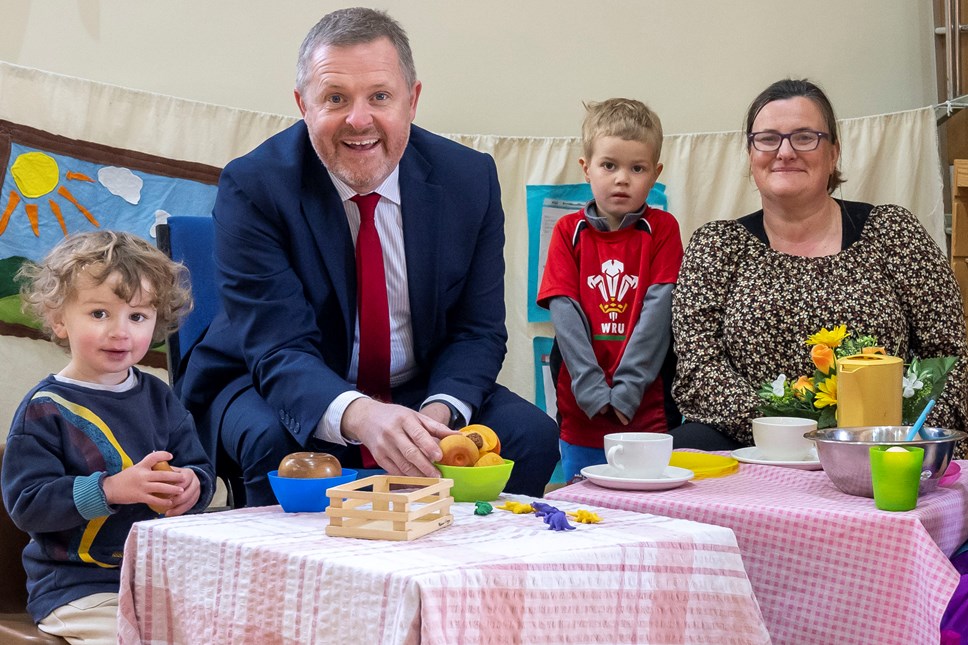
Early years settings ready to support roll out of Curriculum for Wales
Lleoliadau’r blynyddoedd cynnar yn barod i helpu i roi'r Cwricwlwm i Gymru ar waith
The Education Minister, Jeremy Miles, has praised the work of early years settings as they prepare to support the roll out of the new Curriculum for Wales.
At a visit to Llandogo Early Years day nursery in Monmouthshire, the Minister met early years practitioners who have worked with the Welsh Government to develop a curriculum specifically for non-maintained settings.
The curriculum for funded non-maintained nursery settings was published earlier this year. It has been developed to support the roll-out of the new Curriculum for Wales in September and ensure those children who receive early education in a non-maintained setting are given the best possible start on their learning journey.
The curriculum has been co-constructed with significant contribution from early years practitioners and leaders, drawing on the experience of the sector as well as the views of experts in child development and early education.
Training for practitioners has been delivered, and resources to support implementation of the curriculum are now being rolled out, with modules including outdoor learning, play and play-based learning, and child development.
Further resources will be published in June.
The Minister for Education and Welsh Language, Jeremy Miles said:
“It has been a privilege to visit Llandogo Early Years nursery and to see the excellent work they are doing to support our youngest learners.
“Many children begin their learning journey in a non-maintained setting. Having access to high-quality early education provision is essential to children’s educational and social development, and our new curriculum for funded non-maintained nursery settings will ensure there is consistent delivery of this provision across Wales.
“As we move towards roll out of the new Curriculum for Wales for those aged 3-16, early years settings will play a key role. That’s why it has been important for those working in non-maintained settings to be involved in the development of a curriculum specific to them. I’m grateful to all those nursery settings who have been involved in the development of this curriculum, and who continue to work with us as we develop assessment arrangements for the sector.
“The childcare sector has made a significant contribution to our pandemic response. I’d like to take this opportunity to pay tribute to all those working within the sector who have continued to provide support to our youngest learners through often difficult circumstances, ensuring there are safe learning and care environments for them.”
Notes to editors
Early learning (Foundation Phase Nursery) for 3 and 4 year olds is delivered in schools and also childcare settings (non-maintained). Examples of non-maintained settings include day nurseries, playgroups and Cylchoedd Meithrin. There are around 550 childcare settings which provide early education places funded by the local authority, and some 10,000 children receive their early learning in childcare settings.
The curriculum for funded non-maintained nursery settings was published in January and links closely to the principles of child development, as well as to the four purposes of the Curriculum for Wales, and the six areas of learning and experience.
Resources to support implementation of the curriculum are available on Hwb
